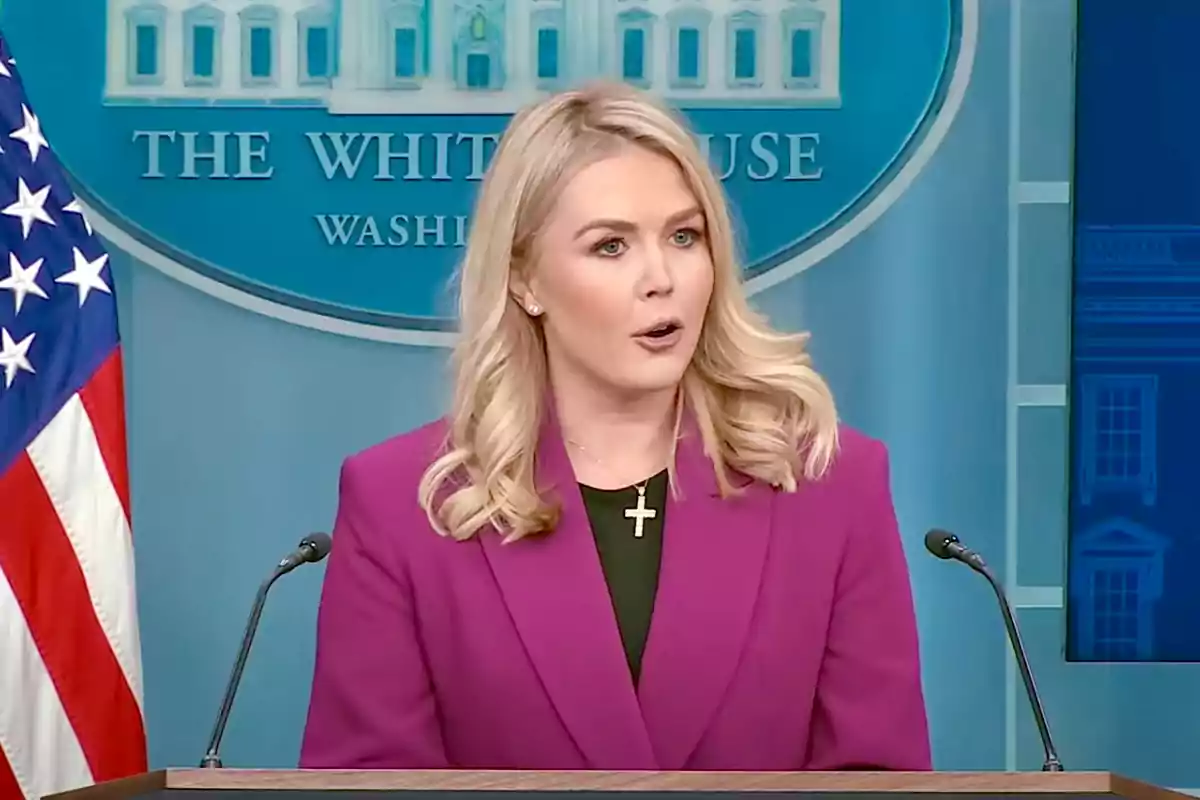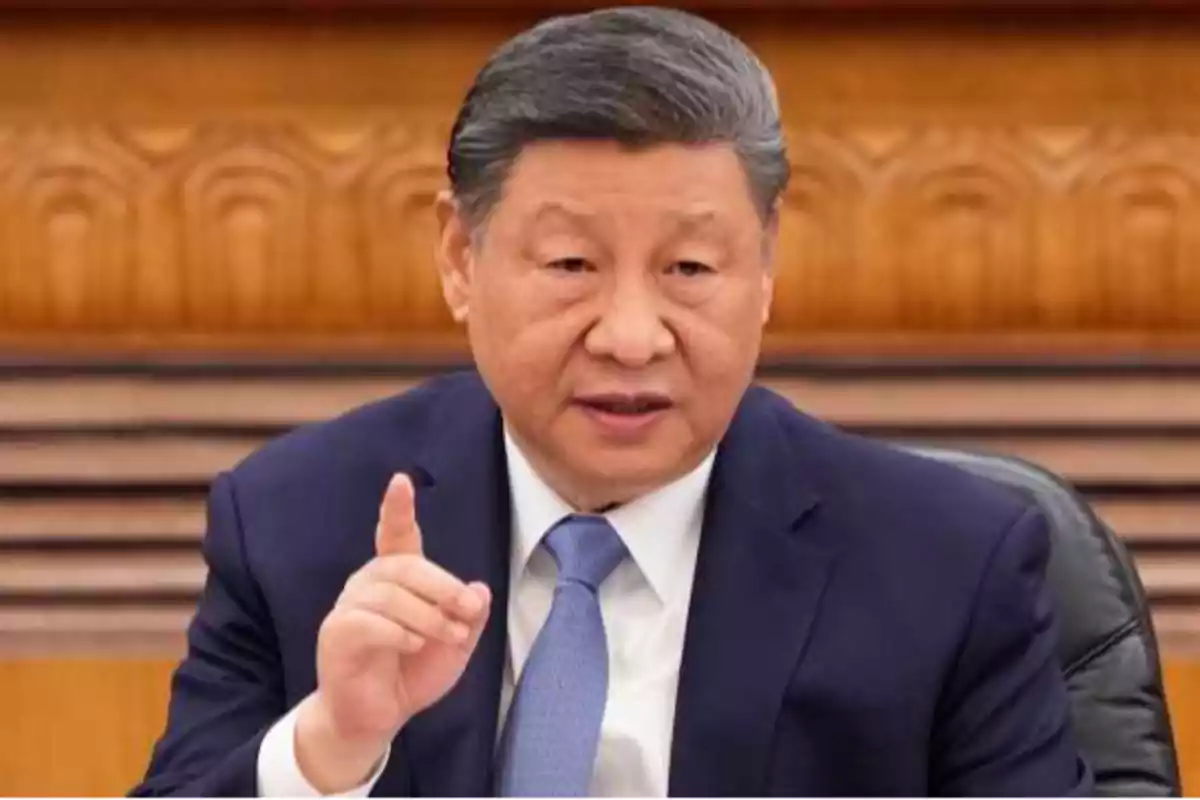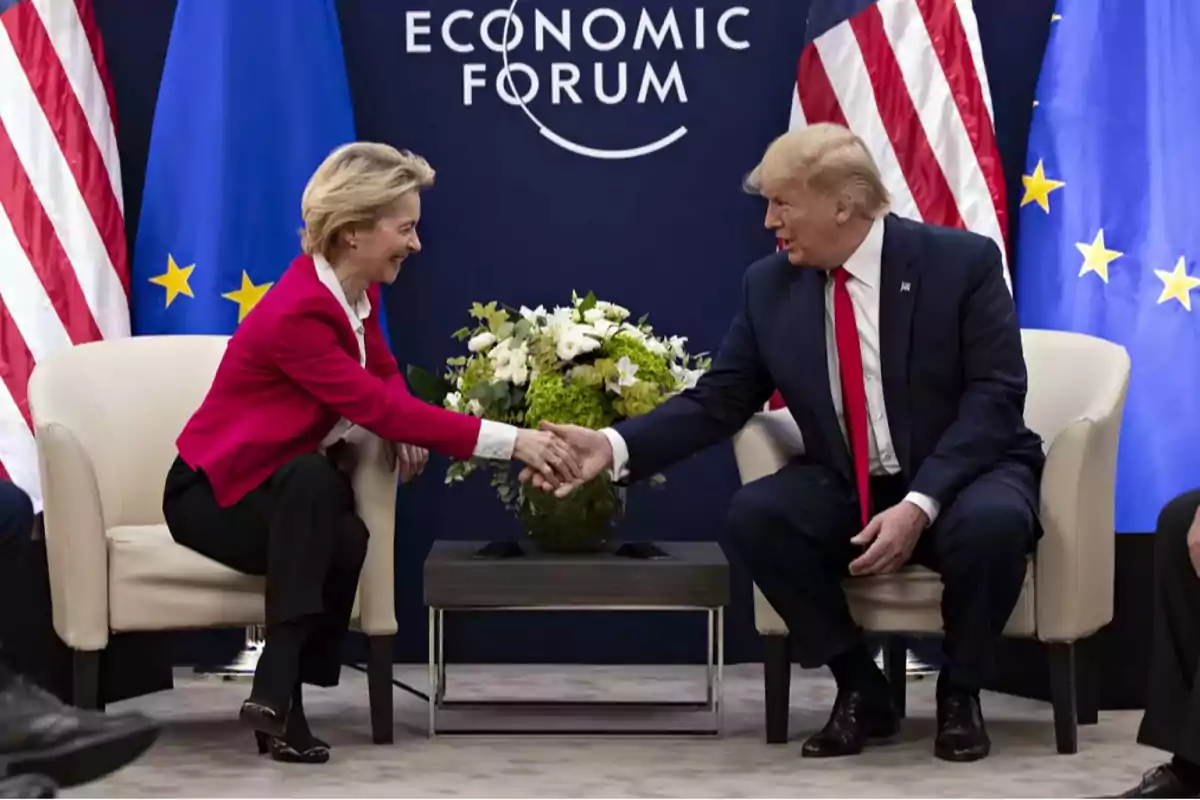
The United States announced brutal tariffs of 104% against China
Donald Trump's administration announced that the tariffs previously announced on China will take effect on April 9 at noon
The trade conflict between China and the United States took a dramatic turn this Monday with the confirmation of a significant escalation in tariffs on Chinese imports by the White House.
According to a report, the White House press secretary announced that the additional 104% tariffs would take effect tomorrow at noon, Eastern time, because China had not withdrawn its retaliatory tariffs.
This increase in import duties follows a previous warning from President Donald Trump to impose punitive measures if Beijing did not cut its 34% tariffs, which prompted a response from Beijing that considerably raises tensions in a trade dispute already affecting global markets.

China's Ministry of Commerce called the measure "an error on top of an error" and vowed to "fight to the end." This reaction reflects China's stance against the United States' trade policies, which have drastically increased tariffs on Chinese products in an attempt to reduce the United States' trade deficit.
Financial markets reacted immediately to the news. Cryptocurrencies took a major hit in their performance, with Bitcoin being the most affected, reaching USD 76,000 and Ethereum plunging below USD 1500.
This market volatility reflects the growing fear that the trade conflict could turn into a full-blown trade war triggered by China, which could lead to a policy-driven recession.

Treasury Secretary Scott Bessent warned on Tuesday that China made "a big mistake" with its retaliatory tariffs on American products, pointing out that the United States is the country with the trade deficit.
According to Bessent, "we are the deficit country. So, what do we lose if China raises its tariffs on us? We export one-fifth of what they export to us, so they have a losing hand."
This assessment underscores the asymmetry in the trade relationship between the two countries, where China relies more on its exports to the United States than vice versa.
On April 2, Trump had announced a new 34% tariff on Chinese products, an increase over the average tariffs that had already been previously imposed.

This increase was partially based on the trade deficit and was an extension of Trump's policy that began with a 20% tariff on Chinese products, especially in relation to fentanyl precursors.
The Chinese government replied with a 34% increase in its tariffs on American products, which would take effect on Thursday, one day after the new imposition of U.S. tariffs.
Trump had warned that if China did not withdraw its 34% increase on American products before April 8, he would impose additional 50% tariffs on Chinese imports, starting April 9. However, the Chinese embassy in Washington stated that it would not back down in the face of these threats.
Finally, at noon on Tuesday, April 8, the Trump administration announced that the tariffs totaling 104% in "Ad Valorem" duties would take effect on April 9 starting at 12:01 PM.

"The threat of U.S. tariff escalation against China aggravates its error and further exposes the nature of its blackmail, which China will never accept," threatened the Chinese embassy on its X account.
"China will fight to the end if the U.S. side continues down the wrong path." This statement reflects China's uncompromising and pedantic stance against Trump's policies and its determination not to yield to U.S. pressures.
Unlike other major countries and trade blocs, which have taken steps to negotiate with the United States, committing to remove trade barriers and tariffs to reduce U.S. trade deficits, China has opted for a more belligerent approach. Beijing demanded that "the United States immediately correct its mistakes" instead of yielding to Trump's demands.

More posts: